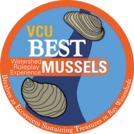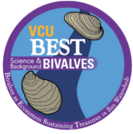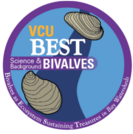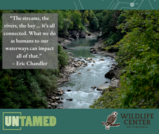
Below is an overview of the mussel collection.
- Subject:
- Science
- Material Type:
- Activity/Lab
- Author:
- VCU CISTEME .
- ACSE 1
- Date Added:
- 02/16/2023

Below is an overview of the mussel collection.

This lesson is designed to allow students to collect information about mussels in their ecosystem and the watershed that they live in

This lesson is designed to allow students to collect information about the role that oysters play in their ecosystem and the watershed that they live in.

NASA eClips Real World: Food Security -- Monitoring Crops from SpaceVideo Description: Discover how NASA's Earth-observing satellites gather data to monitor food growth. Dr. Inbal Becker-Reshef describes how mathematics is used to interpret satellite data and describe vegetation and crop yield. Dr. Hannah Kerner shares how algorithms and models use NASA data to describe and predict food supply and food shortages. This work through NASA Harvest provides tools for farmers and governments to describe and predict food security worldwide. Video Length: 5:25.NASA eClipsTM is a suite of online student-centered, standards-based resources that support instruction by increasing STEM literacy in formal and nonformal settings. These free digital and downloadable resources inform and engage students through NASA-inspired, real-world connections.NASA eClips Real World segments (grades 6-8) connect classroom mathematics to 21st Century careers and innovations. They are designed for students to develop an appreciation for mathematics through real-world problem solving.

Water is the great architect of Earth and a defining factor for the location and movement of life on this planet. Without water, our world would look very different; without the watersheds which capture, coalesce, move, and recycle water throughout a natural system, human and wildlife habitats would not be the same. Freshwater rivers, streams, and lakes are some of the most heavily utilized and pressured natural systems on the planet; these critical habitats have taken the brunt of negative human actions for years. Now, more than ever, we must learn to safeguard our watersheds for the protection of all life that depends on them.For more information and classroom activities, please visit The Wildlife Center of Virginia and VPM UNTAMED websites.

This lesson is designed to allow students to explore local issues to the Chesapeake Bay and its watershed.Potential topics that may arise include pollution, stormwater runoff, overharvesting of fisheries, sea levelrise, habitat destruction, or development/construction. The associated video will highlight issues relatedto sediment, storms and flooding, and sea level rise, but students can investigate any environmentalissue that is relevant to them. While issues may not all be caused specifically by climate change, theissues are exacerbated by climate change, therefore climate change is a thread throughout thewatershed investigation.